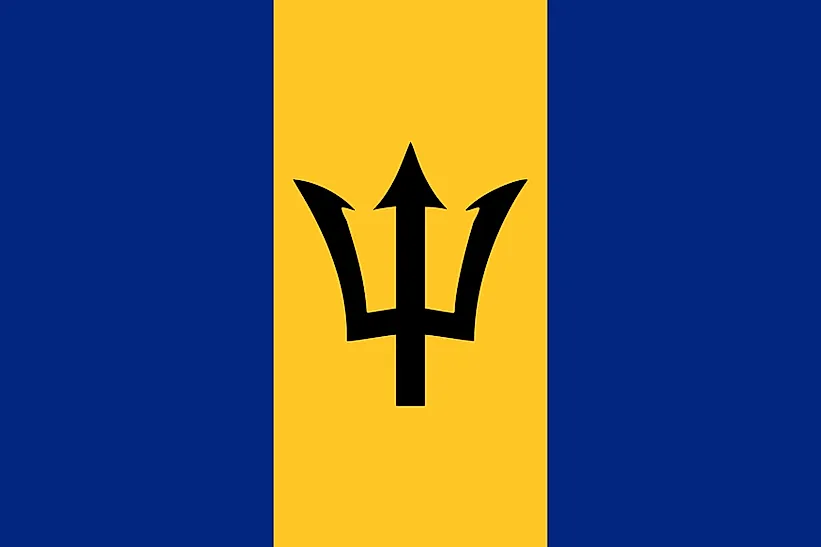
Barbados
| Continent | Americas |
| Capital | Bridgetown |
| Population | 291,495 |
| GDP | $4.80 Billion |
| GDP per Capita | $17,200 |
| Dialing Code | +1-246 |
| ISO Code (2-letter) | BB |
| ISO Code (3-letter) | BRB |
Barbados Landscapes






About Barbados
Welcome to Barbados, a coral island paradise that stands as one of the Caribbean’s most developed and culturally rich nations. Located in the Lesser Antilles, this independent republic of approximately 287,000 people occupies just 432 square kilometers of land, yet offers a remarkable blend of British colonial heritage, African traditions, and modern Caribbean culture. Known affectionately as “Little England” in the Caribbean, Barbados combines sophisticated charm with tropical beauty.
Geographic Features and Natural Beauty
Barbados’s geography is unique among Caribbean islands, formed primarily from coral limestone rather than volcanic activity. The island’s terrain rises gently from the western coast to the central highland region, with the highest point, Mount Hillaby, reaching 340 meters above sea level.
The coastline varies dramatically around the island: the west coast features calm Caribbean waters and pristine beaches perfect for swimming and water sports; the south coast offers excellent conditions for windsurfing and kitesurfing; while the rugged east coast, shaped by Atlantic waves, presents dramatic cliffs and powerful surf spots like the famous “Soup Bowl” at Bathsheba.
The island’s limestone composition has created a network of caves and underground streams, with Harrison’s Cave being the most spectacular example, featuring crystallized limestone formations, flowing streams, and deep pools.
Cultural Heritage and Traditions
Barbadian (or “Bajan”) culture represents a vibrant fusion of African, British, and Caribbean influences. The island’s rich cultural heritage is evident in its music, particularly tuk bands and calypso, its literature, and its vibrant visual arts scene.
Crop Over, the island’s biggest festival, celebrates the end of the sugar cane harvest with music, dance, and elaborate costumes. This tradition, dating back to the slavery era, has evolved into a major cultural event that attracts visitors from around the world.
Bajan cuisine reflects the island’s diverse heritage, combining African, Indian, and British influences. Flying fish, the national symbol, features prominently in local dishes, often served with cou-cou (cornmeal and okra). The island’s rum production tradition, dating back to the 17th century, has made Mount Gay Rum, established in 1703, the world’s oldest commercial rum distillery.
Historical Journey
Barbados’s history spans indigenous Arawak and Carib settlements, through British colonization beginning in 1627, to independence in 1966. Unlike many Caribbean islands, Barbados remained under British control throughout the colonial period, leading to strong British influences in its culture, politics, and education system.
The sugar industry and slavery shaped much of the island’s history and society. After emancipation in 1834, Barbados developed one of the Caribbean’s strongest education systems and most stable democratic governments. The country became a republic in 2021, marking a new chapter in its history while maintaining close ties with Britain through the Commonwealth.
Modern Economic Landscape
Today’s Barbados has successfully diversified its economy beyond its traditional agricultural base. Tourism is now the major economic driver, with the island known for its high-end resorts and excellent service standards. The financial services sector has grown significantly, making Barbados an important offshore financial center.
The country has also invested heavily in renewable energy, aiming to become fossil-fuel free by 2030. Education remains a priority, with the University of the West Indies Cave Hill Campus serving as a major regional institution.
International Relations and Global Position
Barbados maintains strong international relationships and plays an active role in Caribbean regional affairs. The country is a member of CARICOM (Caribbean Community) and various international organizations, advocating for small island states on issues such as climate change and economic development.
Did You Know?
• Barbados is known as the birthplace of rum, with the oldest existing deed for a rum distillery dating to 1703?
• The island has one of the highest literacy rates in the world at 99.6%?
• Pop star Rihanna was born in Barbados and serves as an official ambassador for culture and youth?
• Barbados is often called “The Land of the Flying Fish” due to the abundance of these fish in its waters and their cultural significance?
Conclusion
Barbados stands as a shining example of how a small island nation can achieve remarkable success through stable governance, cultural preservation, and economic diversification. From its pristine beaches to its rich cultural heritage, from its modern infrastructure to its commitment to sustainability, Barbados continues to evolve while maintaining its unique identity. As it faces the challenges of climate change and global economic shifts, Barbados remains committed to its path of sustainable development and cultural excellence.